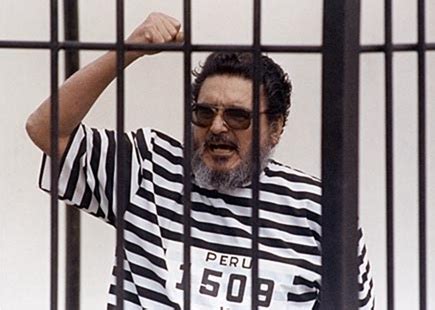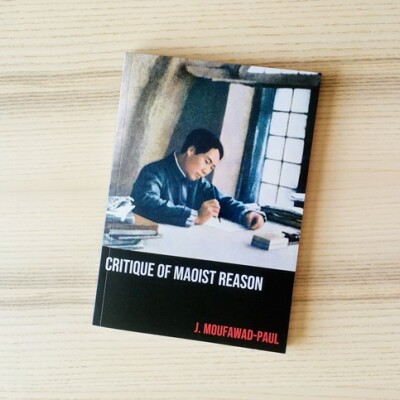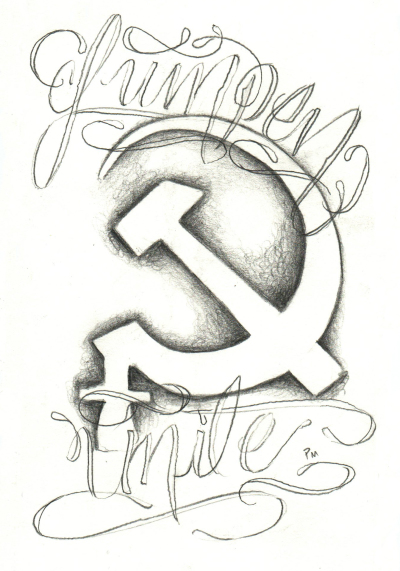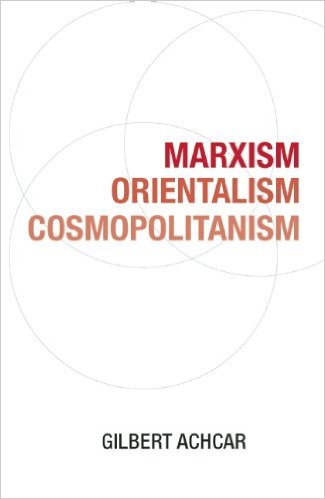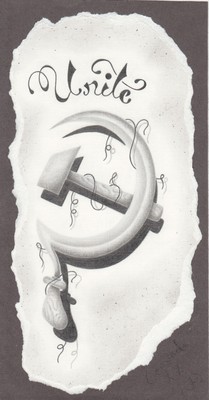
Palestine & Internationalism from the Imperial Core
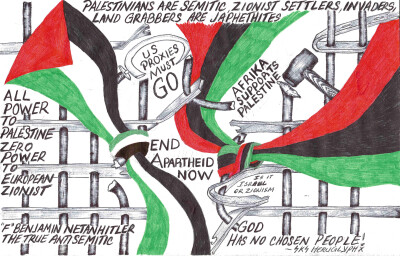
In the past, the Maoist Internationalist Movement (MIM), and its mass org at the time, the Revolutionary Anti-Imperialist League, campaigned to get the University of California to Divest from I$rael.(1) This was a correct strategy, because U.$. imperialism is the number one backer of the I$raeli war machine. Behind the flag of I$rael is the stars and stripes.
More recently, United Struggle from Within (USW) carried out a petition campaign, which read in part:
“Therefore with this declaration we angrily express our indignation with the state of Israel for committing genocide, and for the Israeli people for allowing it to happen in the 21st century after vowing”never again.”
The petition recognized that Palestinian political prisoners had supported the California hunger strikes in recent years and it was time to return solidarity. By 2016, comrades in 16 prisons had gathered 189 signatures. Recognizing the limitations of conditions, the petition also read:
“Within these walls we are as yet powerless to tap into the potential of the imprisoned lumpen; the oppressed internal nation lumpen in particular as agents of social change, but we are not yet powerless to sign a piece of paper to denounce the state of Israel and their support in the U.$.”
Still today, comrades are asking what can we do to support Palestine?
Settlers Supporting Settlers
The war against Palestine is what Amerika has always done from its very founding – land grab, occupation, genocide. Therefore, there is much support in the United $tates for I$rael’s current bombing campaign and invasion of Gaza. And the tactics being used against Palestine could easily be tried against indigenous people here on Turtle Island next.
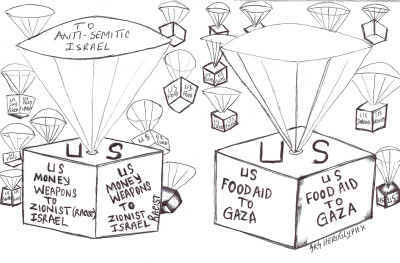
MIM and others have documented the history of Amerikan labor union support for I$rael.(2) Yet, in recent months not only has the U.$. seen millions demonstrate to oppose U.$. militarism in Palestine, but labor unions representing millions of Amerikan so-called workers have signed a call for a cease fire.(3) While Amerikans have always been settlers, the United $tates is more and more a population of people who do not come from settler backgrounds. And more and more, people from non-settler backgrounds are joining the ranks of labor unions, big tech companies and other professional roles. This is one factor behind the wavering support for I$rael. Of course, it is the Palestinian resistance that is forcing Amerikans to take a position.
The cease fire call is a shift for many Amerikan labor unions away from outright Zionism to the left wing of white nationalism. Despite the cease fire statement, these unions will still be campaigning for Genocide Joe this year. And while some members of the International Longshoreman Workers Union (ILWU) participated in a one day protest/shut down of the port of Oakland in support of Gaza, there has been no sustained strike by Amerikan unions that are actively involved in shipping arms to I$rael.
The United Auto Workers (UAW), having been in the news for strikes last year, is one of the unions to issue a statement for a ceasefire. Meanwhile, the UAW has been hosting talks with employees of arms manufacturer Raytheon for a “just transition” to guarantee labor aristocracy union jobs in thefuture technologies of war and genocide. Brandon Mancilla, director or UAW’s Region 9A, announced in a tweet on Dec 1st the formation of a Divestment and Just Transition working group to explore how “we can have just transition for US workers from war to peace.” Behind the UAW’s ceasefire resolution, was UAW Labor for Palestine. Self-described on their website as a “nationwide group of rank-and-file UAW members” that seeks to “organize UAW worksites that send arms and other material to Israel.” They have faced great resistance from the UAW in general to taking any action to stop producing arms for I$rael. Like the Amerikan leaders who mumble words about humanitarian efforts in Palestine while continuing to authorize more and more shipments of war machines to I$rael, Amerikan labor makes statements about ceasefire, while continuing to produce these machines. Actions speak louder than words.
As we reported in ULK 84, arms shipments must get to the Red Sea before they face real resistance; resistance by Yemen’s armed forces. And following I$rael’s attacks on Iranian diplomatic soil in Syria in April, Iran has seized an I$raeli-linked cargo ship passing through the Strait of Hormuz. While the Strait, which accesses the Persian Gulf, does not lead to I$rael, it does lead to I$rael’s new Arab allies in the UAE.
Doing Better
The #1 thing people in the United $tates can be doing in the short-term to stop genocide in Palestine is to stop shipments of arms and aid to I$rael. Just as the imperialists have used blockades to weaken the Palestinian resistance. The question is how to make such a blockade meaningful and sustainable.
In the longer-term it is our responsibility in the United $tates to weaken imperialism from the inside. As we see the principal contradiction in the United $tates to be between nations, it is by supporting national liberation struggles at home that we believe we can best make this happen faster. And without building the revolutionary forces here in the United $tates, we do not foresee a successful, sustained blockade of aid to I$rael.
Another realm of struggle we should be tuned into is the struggle against political repression of those supporting Palestine, and especially the state imposing limitations on the exchange of information between Palestine and the world. The labeling of organizations linked to the Palestinian struggle as “terrorist organizations” is parallel to organizations in the oppressed nations in the United $tates being labelled “security threat groups (STGs).” As our readers know well the right to free speech and association is not guaranteed but must be struggled for within this bourgeois democracy.
Finally, correct political line must lead for us to succeed on all fronts. Democratic Party-supporting labor unions calling for “cease fire” is not the correct political line. Stopping all aid to I$rael is correct. Supporting national liberation struggles of the oppressed is correct. Recognizing the populations of the exploiter countries to be part of the bourgeoisie is correct. And recognizing the need for independent communist organizations in all parts of the world is correct for avoiding past mistakes that restricted the revolutionary potential of oppressed nations (see next section).
There is a reinforcing effect between revolutionary nationalist and communist movements around the world. Communism was more popular in Palestine when communists were demonstrating models of success in practice in other parts of the world. The revolutionary nationalism of Palestine today will impact the consciousness of revolutionary nationalism around the world, including within U.$. borders. Amplifying this effect in the short-term will help us build the type of movement that can provide real solidarity with Palestine in the short-term. The history and class interests of Amerikan labor prove that their current level of sympathies with Palestine are tenuous and lacking in militancy.
It is the struggle of the occupied indigenous populations, the largest of which is Aztlán, that are most parallel to Palestine in our context. Meanwhile New Afrika has probably been the most ardent supporter of Palestine in the United $tates historically. Though it’s also worth noting the prominence of Jewish voices in opposing the war from the United $tates, due to the connection the existence of I$rael has forced onto all Jewish people. As a resistance movement based in a compact area of land that is mostly urban, there is much to be learned tactically from the successes of the ongoing struggle in Palestine today that relates to the conditions of oppressed nations in the heart of empire.
The ICM, Pan-Islamism and Palestine
Support from communists around the world, especially those waging People’s War in the Third World, has been unwavering on the side of Palestine liberation since October 7th. But the history of the International Communist Movement (ICM) has led to setbacks in Palestinian and pan-Arab liberation.
MIM(Prisons) has been working on reiterating MIM line on the Communist International in recent years as part of an effort to compile MIM’s work opposing crypto-Trotskyism. One of the key issues we have with Trotskyism is its view that the most advanced capitalist countries will/should lead the communist movement. MIM line says that the most exploited and oppressed nations will lead the way, and recognizes the need for independent initiative and direction from within each nation. We also see the need for a Joint Dictatorship of the Proletariat of the Oppressed Nations (JDPON) as a tool for overthrowing imperialism. Under the JDPON, it will be the communist minorities in former imperialist countries that are benefiting from the assistance of more advanced, socialist, former colonies.
From 1919-1943, the third Communist International (Comintern) was the first experiment in an international communist movement that involved parties in state power. At that time the idea that the advanced capitalist countries would lead the socialist revolution was more popular. Bolshevik leader Mirza Sultan-Galiev was one of the biggest critics of this position. In 1923, at the 9th Conference of the Tatar Obkom, Sutlan-Galiev stated:
“If a revolution succeeds in England, the proletariat will continue oppressing the colonies and pursuing the policy of the existing bourgeois government; for it is interested in the exploitation of these colonies. In order to prevent the oppression of the toiler of the East we must unite the Muslim masses in a communist movement that will be our own and autonomous.”(4)
MIM positively reviewed eir ideas:
“Sultan-Galiev was for the formation of a”Colonial International” to replace the Comintern as organization of central importance. He also called for the “dictatorship of the colonial nations over the metropolis.”“(5)
Sultan-Galiev applied this concept to Russians, who were far more oppressed and exploited than Amerikans today, as well as to the United $tates, which ey saw as built on the genocide and labor of First Nations and New Afrikans.
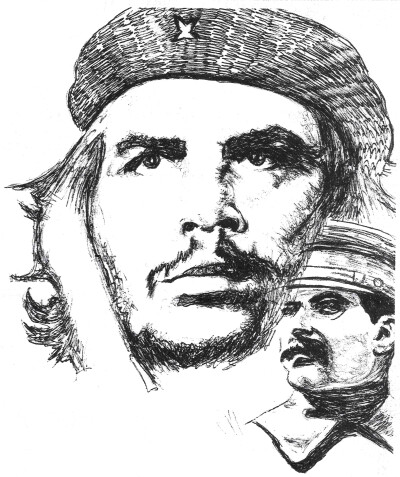
For a brief period, about 5 years after the Russian revolution, the Bolsheviks had created a Muslim communist party separate from the Russian one. But this project was quickly abandoned. Decades later, USSR leader Joseph Stalin, who also played a leading role in the Comintern, abolished the Comintern in 1943. Stalin and Mao both said the communist international was no longer appropriate for the complicated conditions of international struggle. One of the problems with the communist international was the mixing of people from exploiter countries and exploited countries in one organization. Another was the mixing of people engaged in armed struggle against imperialism with those who are not. Sultan-Galiev’s proposal for a “Colonial International” addresses the first problem. However, eir ideas were not ultimately adopted by the Comintern, and ey was purged from the Bolshevik Party in 1923.
Current Events in Russia and Palestinian Communism
Last week a horrible mass shooting took place in Moscow, killing 143 people. The gunmen are reportedly from Tajikistan and working with the Islamic State-Khorasan, based in Central Asia. An Amerikan analyst explained that this group “sees Russia as being complicit in activities that regularly oppress Muslims” and that a number of other Central Asian militants have allied with the Islamic State group due to their own grievances against Moscow.(6) Tajikistan is a former Soviet republic. One must wonder if a Muslim Communist International, separate from the Russian one, could have avoided the emergence of militant groups in Central Asia today that have violent beefs with Moscow. This goes both ways, with chauvinist attitudes by many Russians today towards the other former Soviet republics. As the capitalist/imperialist USSR collapsed in 1991, both sides of this national divide perceived the other to be exploiting them.(7)
On the Western side of the USSR Sultan-Galiev helped establish a separate Crimean Autonomous Soviet Socialist Republic in 1921. This became a bastion for German Nazis in the 1940s, leading to the native Tatar population being relocated by Stalin, and the area populated by Russians and Ukrainians – leading to disputes over the territory today. This suggests that Stalin was correct to oppose Sultan-Galiev for narrow nationalism in the late 1920s and ultimately have em killed in 1940 as the Nazis were preparing to invade.
The problems with trying to unify too quickly with a communist international seems to have played a role in Palestine and the Arab world as well. The Soviet Union supported the partitioning of Palestine by the Zionists, leading to the Nakba (“The Catastrophe” or ethnic cleansing of Palestine) in 1948. Despite the Comintern having been dissolved in 1943, apparently it was still policy for the Communist Parties in Palestine, Syria, and Lebanon to support the USSR line on the partitioning of Palestine against their own beliefs. This led to massive loss of support for the communists in Syria and Lebanon for years to come (there was not much support in Palestine until years later).(8)
While U.$. and I$raeli imperialism played a role in suppressing communist organizing, these internal contradictions and short-comings are what allowed such efforts to succeed. We can see how the strategies we choose today can have grave and lasting impacts decades later. That is why we, as communists, must do a better job of implementing an effective internationalism by recognizing the national self-determination of each oppressed nation. Independence in action must coincide with a struggle for unity in ideology.
“The early stages of socialism according to both Lenin and Stalin would see a vast multiplication of nations seizing their destinies. It was only under advanced communism that we could contemplate the disappearance of nations.”(7)
The above is in line with USW’s slogan of “unity from the inside out.” It is only with true self-determination of the oppressed nations that they can fully unite with other nations. Of course, the more unity we have the stronger we are. So we must struggle for unity, without forcing it before conditions are ripe.
We call on comrades to continue to make connections between Palestine and national struggles in occupied Turtle Island, and to build national liberation struggles here in the heart of empire.
Notes:
1. MIM
- California, UC Divest From Israel! campaign page
2. Boston
MIM, August 2005, Labor aristocracy hits the streets for I$rael,
This article gives a more comprehensive background on the connection
between Zionism and U.$. labor unions: Jeff
Schuhrke, 11 November 2023, US Labor Has Long Been a Stalwart Backer of
Israel. That’s Starting To Change., Jacobin.
3. Democracy Now!,
26 December 2032, Labor Demands a Ceasefire: UAW, Electrical &
Postal Workers Call for Israel’s Assault on Gaza to
End.](https://www.democracynow.org/2023/12/26/us_labor_movement_israel_palestine)
4. Joshua
Alexander, 08 August 2016, Two Articles by Mirsaid Sultan-Galiev, 1919,
Anti-Imperialism.org.
5. MIM’s
Pan-Islamic Page
6. Sophia
Yan, 23 March 2024, Islamic State attackers publish selfie following
Moscow attack, The Telegraph.
7. MIM,
The role of the National Bourgeoisie: The decline of Soviet
social-imperialism
8. Guerrilla History, 15 March 2024, History
of Palestinian Communism w/ Patrick Higgins.
Related Articles:This article referenced in:








